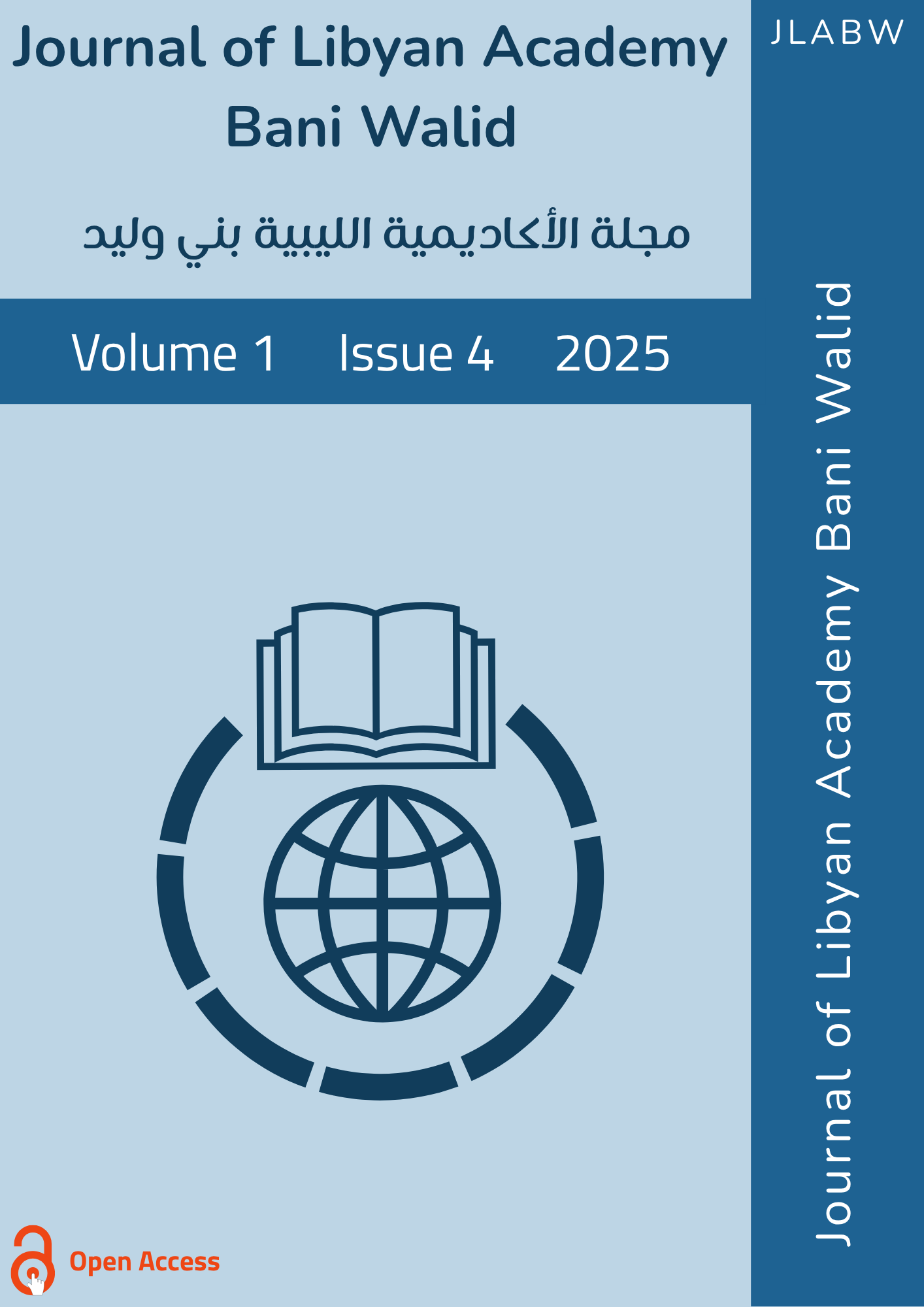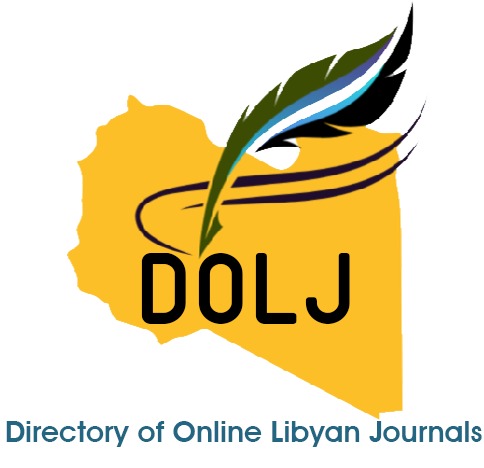The role of applying the circular economy and environmental management in achieving sustainable development in Libya
DOI:
https://doi.org/10.61952/jlabw.v1i4.261Keywords:
Sustainable development, circular economy, environmental management, Libya, sustainable resources, pollutionAbstract
This study examines the role of the circular economy and environmental management in achieving sustainable development in Libya. It highlights the limitations of the current linear economic model (extraction-production-disposal) in Libya and proposes a circular economy as a sustainable alternative focused on waste reduction, reuse, and recycling.
The main findings reveal significant environmental challenges, including poor waste management and weak infrastructure, as well as political instability and policy gaps. However, Libya holds significant opportunities, particularly in solar energy (with the southern regions receiving up to 2,459 kWh/m²/year of solar radiation) and international partnerships.
The study emphasizes the alignment of the circular economy with the United Nations Sustainable Development Goals, particularly Goal 7 (clean energy), Goal 12 (responsible consumption), and Goal 13 (climate action). Practical applications of the green economy in Libya include waste-to-energy, graywater recycling, and sustainable manufacturing.
Key barriers include poor public awareness, weak institutional capacity, and reliance on oil revenues. It also included several recommendations, most notably developing a national green economy strategy with clear policies, investing in recycling infrastructure and solar energy projects, strengthening environmental governance through stricter laws, and launching public awareness campaigns.
The study concludes that Libya's transition to a green economy is essential to achieving a balance between economic growth and environmental protection. Despite challenges, harnessing the potential of solar energy, improving waste management, and enhancing international cooperation are all factors capable of driving sustainable development.
References
حيد, م. ج., & العبيدي, س. ع. م. (2024). الاقتصاد الدائري ودوره في تحقيق التنمية المستدامة في العراق. Gharee for Economics & Administration Sciences, 20, 19.
المراجع الاجنبية
Ahmed, W., Siva, V., Bäckstrand, J., Sarius, N., & Sundberg, H.-Å. (2024). Circular economy: Extending end-of-life strategies. Sustainable Production and Consumption, 51, 67-78.
Alhamdi, F. M., & Al-Kahtani, S. M. (2025). The impact of applying environmental management standards in achieving sustainable development: evidence from food product manufacturing companies in Saudi Arabia. Discover Sustainability, 6(1), 59.
Alnaas, J. F., Sharif, A., & Altraiki, M. S. (2025). Sustainable energy future for Libya:: Assessing the solar energy potential of twenty-three urban areas. Journal of the Academic Forum,
Arruda, E. H., Melatto, R. A. P. B., Levy, W., & de Melo Conti, D. (2021). Circular economy: A brief literature review (2015–2020). Sustainable Operations and Computers, 2, 79-86.
Bank., E. I. (2024). لمحة عن البنك الأوروبي للاستثمار https://data.europa.eu/doi/10.2867/187778.
Brundtland, G. H. (1987). Our common future world commission on environment and developement.
Fischer, M., Foord, D., Frecè, J., Hillebrand, K., Kissling-Näf, I., Meili, R., Peskova, M., Risi, D., Schmidpeter, R., & Stucki, T. (2023). The concept of sustainable development. In Sustainable Business: Managing the Challenges of the 21st Century (pp. 17-27). Springer.
Gu, D., Andreev, K., & Dupre, M. E. (2021). Major trends in population growth around the world. China CDC weekly, 3(28), 604.
Kirchherr, J., Reike, D., & Hekkert, M. (2017). Conceptualizing the circular economy: An analysis of 114 definitions. Resources, conservation and recycling, 127, 221-232.
Mazraani, G., & Tucci, M. (2025). The Role of Environmental Management Systems (EMS) in Driving Organizational Development and Environmental Sustainability. American Journal of Environment and Climate, 4(1), 37-51.
Mishra, R. K., Mishra, D., & Agarwal, R. (2025). ENVIRONMENTAL SUSTAINABILITY AND ECOLOGICAL BALANCE.
Mohammed, N. (2025). Sustainability, the Circular Economy, and Digitalization in Libyan Organizations. Journal of Environmental Economics and Sustainability, 2(3), 12-12.
Saha, S. K., & Saha, J. (2024). The Transition in Economic Theory from Linear to Circular for the Sustainability: A Case Study.
Svetlana. (2025). SUSTAINABLE DEVELOPMENT GOALS AS PART OF STUDENTS'ATTITUDES. PHILOSOPHICA International Journal of Social and Human Sciences, 12(24-25), 160-168.
Wautelet, T. (2018). The concept of circular economy: Its origins and its evolution. January). doi, 10.
Weymouth, R., & Hartz-Karp, J. (2018). Principles for integrating the implementation of the Sustainable Development Goals in cities. Urban Science, 2(3), 77.








